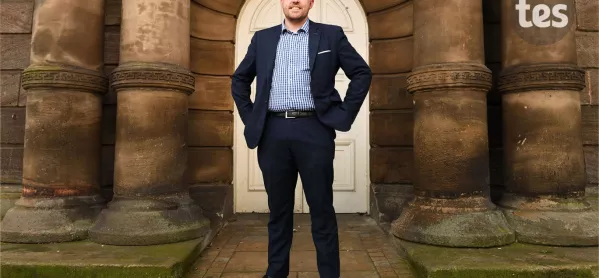Large multi-academy trusts could use partnerships with private schools to roll out beyond London and the South East, school standards minister Jonathan Gullis has said today.
Speaking at an event at the Conservative Party conference, Mr Gullis said that he wanted to see larger trusts developing schools in areas including the North East and his own constituency, Stoke-on-Trent, and that they could do this by partnering with smaller independent schools.
He talked about ensuring that larger trusts - such as the likes of Ark and Harris Federation - were not “heavily based” in London and the South East.
Speaking at the session run by the Independent Schools Council and PLMR, the minister praised a partnership between Eton and Star Academies to build three sixth forms in the North and Midlands.
He added he was “very upset” that his own constituency of Stoke was not chosen for one of these sixth forms, adding: “If anyone is listening, we’re still open to having that conversation locally.”
When pressed by the host, PLMR’s head of education Ollie Lane, on what smaller independent schools without the resource of Eton could do in terms of partnerships, Mr Gullis said: “I think it’s about reaching out. We’ve got some fantastic large multi-academy trusts that exist in our system. Star is one of those but you’ve got others - Ark, Harris, United Learning.”
“Obviously, those larger MATs have the revenue and capital funding - they have more resources than those smaller MATs because of their size - how can we use those small independent schools to feed into those larger MATs that we want to see rolled out across the country, just heavily based in London and the South East?”
He then clarified that he did not want to be “unfair”, and that not all schools run by these MATs were in the South East and London, before adding: “But in Stoke-on-Trent, I want to see some leading MATs in our area.
“I’m sure they want to see that in the North East, where we know those secondary outcomes are nowhere near good enough. It’s terrifying to see those figures for those young people.”
Fear over private schools losing charitable status
Earlier in the session, which was focused on how independent schools could share their benefits with as many students as possible, Mr Gullis had said his “biggest fear of all” would be to remove charitable status from private schools.
He said that doing so, as was proposed at the Labour Party conference last week, would create a “more elitist” system, and added that we should not “punish” the aspiration of middle-income earners.
Others on the panel also agreed with Mr Gullis.
Julie Robinson, CEO of the Independent Schools Council (ISC), said that Labour seemed “wedded” to the policy, even though it would drive up fees, while Geoff Barton, general secretary of the Association of School and College Leaders, said it would lead to the “displacement” of some pupils.
In a blog published last week, Mr Barton had previously warned that it was “very unlikely” that taxing private schools would work as a way of improving state funding to “any significant extent”.
“It will drive up school fees and lead to the closure of small independent schools, displacing many children into the state education system with the associated cost”, he wrote.




